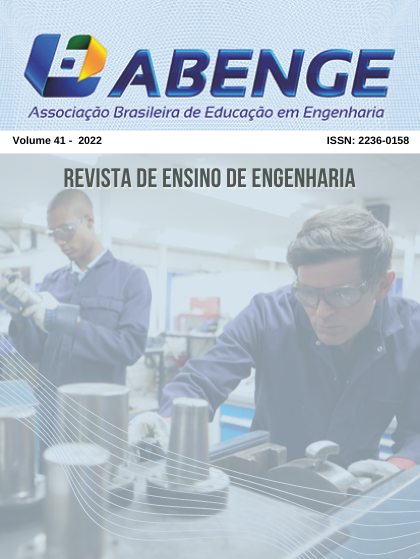ONLINE LABORATORIES IN PANDEMIC TIMES: CASE OF STRUCTURES/STATICS USING THE ZEEMAN’S MACHINE
Palavras-chave:
Remote learning, online laboratory, online Engineering education, Zeeman’s machine, didactic catastrophe machineResumo
The Engineering Education is a strategic branch of the educational system of any organized State that aimsto maintain an adequate interaction between the development and application of new technologies, and thetransmission of concepts used to build the physical environments of their societies. These educationalactivities involve the controlled observation of facts and their correct interpretation, usually conductedduring in-person experimental classroom lectures. The blooming of viruses in the highly concentratedmodern societies, which the recent experience showed that may conduce to pandemics, exposes the need ofexperimental lectures or activities in the context of online, or hybrid online/in-person Engineering classes.This study presents a successful application of an experimental learning activity, which required students tolaunch a theoretical investigation, collect experimental data, compare theoretical and experimental results,interacting effectively to present a report with their understanding of the experiment. The study wasconducted joining two hybrid Statics classes (with online and in-person students), a fundamental disciplineof Civil Engineering, using as challenging motivator an adaptation of the Zeeman’s machine. A competitionwas organized for the students to present solutions of questions related to the machine. The equations anddata obtained by the students are described in this study for further applications. Aspects of didactics,students’ reception, feasibility of the activity are discussed, showing the adequacy of this initiative inexperimental learning for remote and hybrid teaching models.Downloads
Publicado
2022-06-19
Edição
Seção
Artigos


